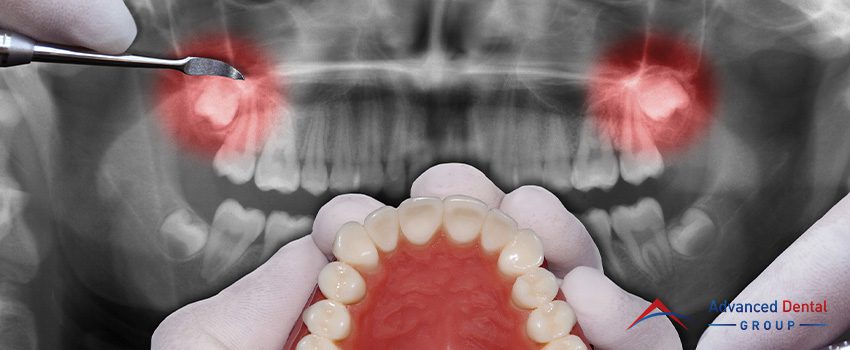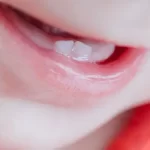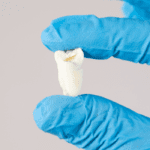Wisdom teeth erupt at a mature age, either in your late teens or early adult years.
The wisdom teeth are wide, flat, and found at the back of your mouth, with two on the upper and lower sets of teeth. These late-stage molars act as extra teeth for chewing.
While most people have complete wisdom teeth, others have few or none, amounting to approximately 5-37% of the population. Luckily for these people, wisdom teeth eruption has common side effects, like tooth pain, swelling, and redness.
There is a common misconception that wisdom teeth need to be extracted eventually, regardless of one’s situation; however, it isn’t always required. Why then do people get their wisdom teeth removed? Is it necessary even in the absence of pain?
When To Have Wisdom Teeth Removed?
As you age, your mouth undergoes several changes. Jaws are said to stop growing at 18, while wisdom teeth generally come out later still. Sometimes, there isn’t enough room in your mouth to accommodate the sudden eruption of wisdom teeth. It’s situations like these that lead to dental complications.
Whenever you undergo regular cleaning, your dentist monitors your wisdom teeth and checks if any of the following issues are present:
- Misaligned eruption: This affects the rest of the teeth and causes sinus problems, jaw alignment problems, tooth cavities, and cysts.
Impacted teeth: This allows bacteria to fester and harm the rest of your teeth. - Partial eruption: This and a failure to properly clean your teeth lead to infection, cavities, and gum diseases.
According to the American Dental Association, you may need to have your wisdom teeth removed if you have or feel any of the following:
- Pain
- Infection
- Gum disease
- Tooth decay
- Cysts
- Tumors
- Neighboring tooth damage
Dentists can spot early wisdom teeth eruption symptoms and, if required, advise patients to have them removed before further problems arise. Generally, dentists prefer having extractions done while young before the bones are completely formed, as recovery times are often shorter.
However, wisdom teeth don’t necessarily need to be removed. Once they have fully erupted healthily, without any complications, and thorough cleaning is still possible, extractions aren’t necessary unless recommended by the dentist.
Wisdom Teeth Complications
As with any other surgical operation, there are always potential issues.
1. Alveolar Osteitis or Dry Socket
A dry socket occurs when the formed blood clot has been dislodged, and the gum nerves are exposed to food debris. Blood clots are necessary to help extraction sites heal, and their absence, when dislodged and exposed, can cause extreme pain. If there is severe discomfort three to five days post-extraction, visit your dentist immediately.
2. Pain and Swelling
These are common wisdom teeth removal side effects within the first days following the extraction. To alleviate the pain, over-the-counter medication may be prescribed; however, if they prove ineffective, you may need further oral examination.
3. Bleeding
Bleeding is expected within the first 12 hours before the clot forms. Minimize the pain by rinsing with salt water, eating soft food, and not smoking.
4. Lip Numbness
Numbness is usually temporary. If the inferior alveolar nerve sits too close to the wisdom teeth, it can inflict damage and prolong the loss of sensation after the extraction; however, this rarely happens.
5. Mouth Opening Discomfort
This problem is also temporary; however, consult your dentist for a prescription if you need help opening your mouth.
Post-surgery care is essential for faster healing. Follow your dentist’s instructions carefully to reduce the risk of infection.
What Will Happen If You Do Not Remove Your Wisdom Teeth?
If you experienced any of the previously mentioned symptoms by American Dental Association and opted not to have your wisdom teeth removed, be prepared for the following consequences:
- There will be pain and soreness in your jaw, throat, and ears.
- Infections caused by unresolved wisdom teeth complications, such as pericoronitis, may spread, putting people with a weak immune system at risk. Infections can also affect your cheeks and neck.
- You may suffer from bone destruction and gum disease.
- With poor oral hygiene, wisdom teeth will decay and ruin their neighboring teeth.
- Wisdom teeth without the necessary space will force your other teeth to move, causing pain, pressure, and damage.
- A jaw cyst may develop on the crown of an impacted tooth and cause bone damage.
- Your jaw might fracture.
Who Can Check Your Wisdom Teeth?
We at Advanced Dental Group are always ready to connect you to the best dentists in your area who will handle any dental services you need. Contact us today, and we will happily assist with any queries or concerns.





